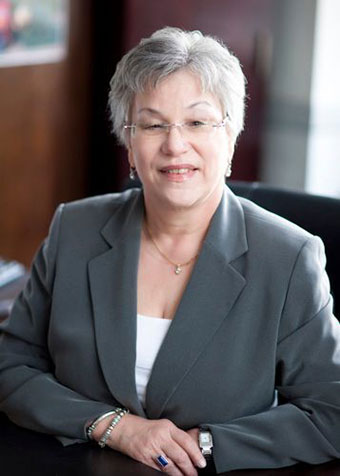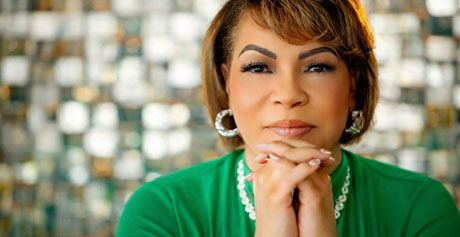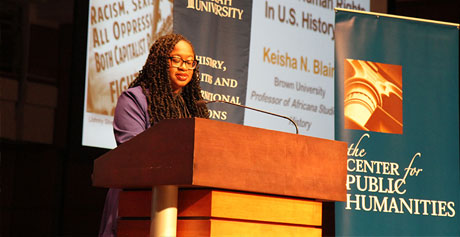A One-on-One Conversation With Attorney Carol McCarthy.
 Carol McCarthy has practiced family law since 1976 and has concentrated her practice in family law since 1985. She has handled all areas of family law, including cases involving abused and neglected children. She began practicing law in 1975, after being admitted to the bar. She went into practice at Neighborhood Legal Services, an organization that represents indigent clients. In this practice, she was exposed to a variety of difficult family law issues. Ms. McCarthy represented children and parents in matters involving custody between parents and between parents and the county.
Carol McCarthy has practiced family law since 1976 and has concentrated her practice in family law since 1985. She has handled all areas of family law, including cases involving abused and neglected children. She began practicing law in 1975, after being admitted to the bar. She went into practice at Neighborhood Legal Services, an organization that represents indigent clients. In this practice, she was exposed to a variety of difficult family law issues. Ms. McCarthy represented children and parents in matters involving custody between parents and between parents and the county.
Q: When did you know you would pursue a career as an Attorney?
CM: I decided in college which was the early 70s. There was a lot of social and political activism so I though law school would be a good way to address those kinds of issues.
Q: Can you share with our audience, the types of law you specialize in?
CM: Family law, divorce, custody, support, distribution of assets, alimony, domestic violence issues, adoption, and some juvenile court work (abused and neglected children).
Q: What is your approach or philosophy to winning or representing a case?
CM: Being well prepared and knowledgeable in the law.
Q: Can you share with our audience the type of pro-bono work you do?
CM: I represent clients in Protection from Abuse cases, give custody advise, and do some custody representation. I also was a board member, including being officers, of Neighborhood Legal Services a non-profit for low-income clients.
Q: If we interviewed all your past clients … what is “one” common word that comes up when they describe working with your law firm?
CM: Professional
Q: What was the most challenging part of law school for you?
CM: Getting through the first year and putting up with sexist professors.
Q: What advice would you give to young women who want to pursue a career as an Attorney?
CM: It is hard work but if you stick with it, it is rewarding. There are ways to get past the sexism that s till exists.
Q: Were there moments in your career that were pivotal to getting where you are today?
CM: I had great mentors in other women lawyers. Also, many of the judges (in the last 70s and 80s (they were mostly men) also gave guidance on how to become a lawyer with high practice and ethical standards.
Q: What expectations did you have after graduating and receiving your law degree?
CM: That I would hopefully get a job.
Q: What are the best practices you have employed to build a successful career?
CM: Giving back to the community.
Q: What has been the most interesting legal issue you’ve dealt with in your legal career?
CM: Had too many cases to pick one.
Q: What is it about your job that most excites you?
CM: My firm has very smart people and I enjoy sharing strategies with them. It helps to provide better service to the clients.
Q: What's your advice for women in male-dominated fields?
CM: Have a good sense of humor but know when to stand up for what is right. That means building relationship with other successful women and men.
Q: What's the greatest fear you've had to overcome to get where you are today?
CM: That I would do harm to someone’s life.
Q: Can you tell our audience one of your most memorable moments your career?
CM: There are so many, and they mainly surround good interactions with other lawyers and the court.
Q: What’s one lesson you’ve learned in your career that you can share with our audience?
CM: Hang in there - it is worth it.
Q: Which woman inspires you and why?
CM: My business partner - all but one are women. They are smart and I respect them tremendously.
Q: What are some of the challenges you feel women face today?
CM: Same as I faced in 1975 - such as figuring out to give the best you can to your family and your clients. I think the market is way more competitive today than in 1975 when I began so it is harder to develop a reputation that attracts clients.
Q: What advice would you give to young women who want to succeed in the workplace?
CM: As I said earlier, work hard but have a sense of humor. There will be times that is the only thing that will get you through the day.
Q: After high school, where did you feel your career path would take you?
CM: I meant to be a teacher of social studies.
Q: Can you tell us how you manage your work life balance?
CM: Do not expect it. I never found a time when both home life and work like were in order. It just traded off and you learn to adjust to when one being out of control while the other is not and vice versa. As a result- I did not expect perfection or trying to be everything for everyone. Again, clients and family were the only real priorities. It helped having a good spouse.
Four Things About Carol McCarthy
1. Who is the most fascinating person you have ever met?
No one famous but ordinary people such as my husband, my business partners, and friends
2. If you unexpectedly won $10,000, what would you spend it on?
Butler County Humane Society and Neighborhood Legal Services donations
3. What would your perfect vacation look like?
Book and a beach
4. If you could go back in time to change one thing, what would it be?
Nothing


